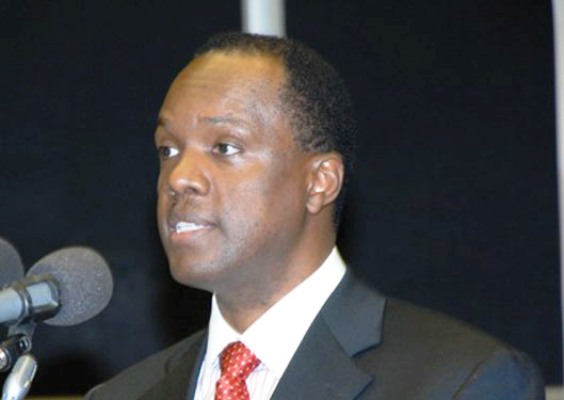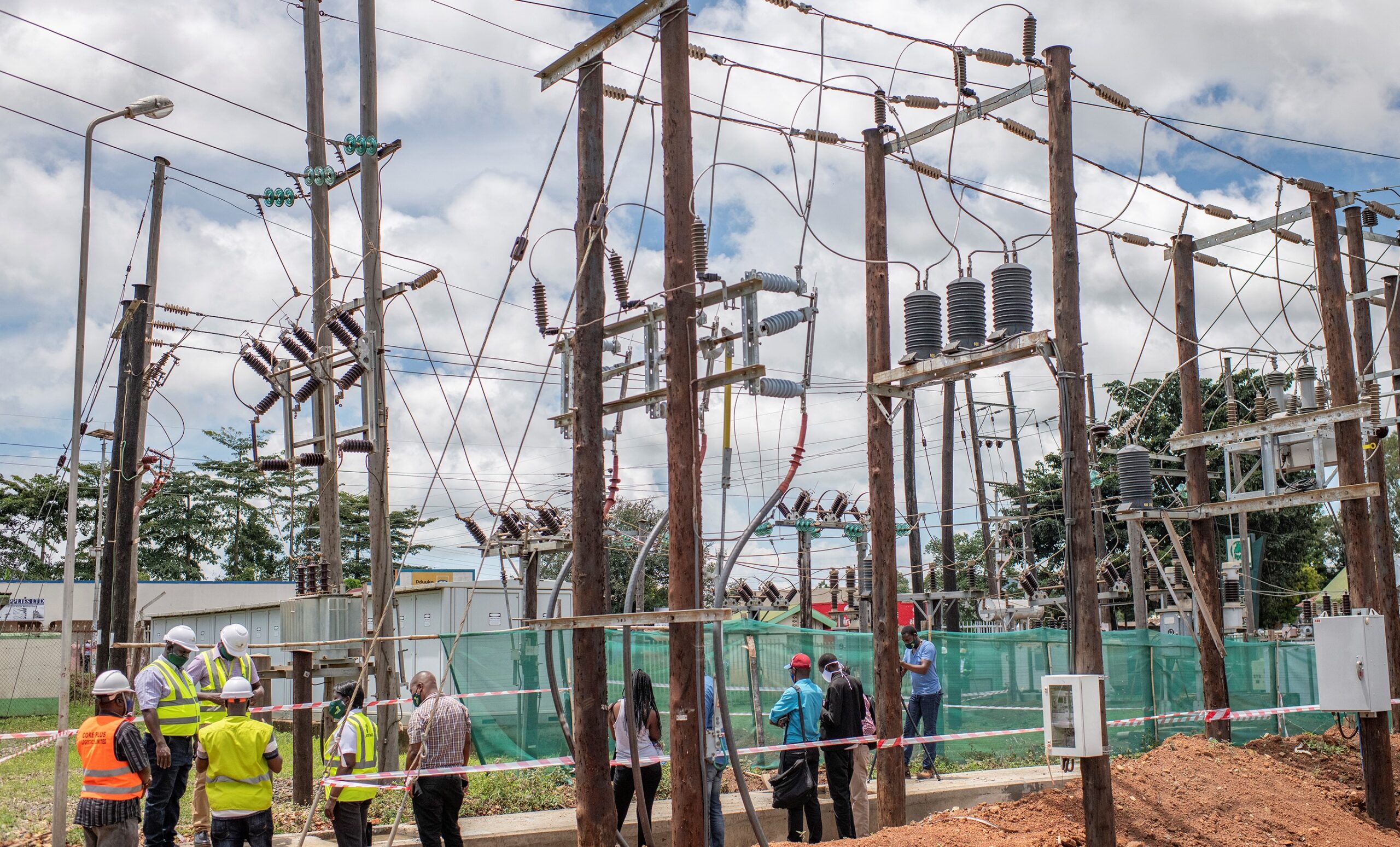Businessman Patrick Bitature
On Friday, May 13, 2022, Muwema & Company Advocates and Solicitors asked Monitor Publications to retract a story stating that High Court Judge, Musa Ssekaana had asked the Uganda Registration Services Bureau-URSB to consider documents in the Simba Telecom takeover.
In a letter, written on behalf of Simba Properties Investment Co. Limited, Simba Telecom Limited, Linda Properties Limited, and Elgon Terrace Hotel Limited – all companies belonging to city businessman Patrick Bitature – demanded that Monitor not only retracts the story but also compensate Bitature for the reputation damage the publication had caused.
“Be advised that the publication of the above-impugned story is neither fair nor justified as it amounts to deliberate business defamation which has unnecessarily damaged and depicted each of our clients in a very negative corporate light; as a result of those defamatory publications, our clients have jointly and severally, suffered substantial loss and damage now provisionally estimated at USD 1,000,000 for which your company is held directly liable,” the letter read.
It also demanded that the money be paid in seven days together with the lawyer’s legal fees of USD 100,000. But instead of publishing an apology retracting the said story, Monitor five days later, carried an advert in which Quickway Auctioneers and Court Bailiffs put Bitature’s properties up for auctioning if he fails to pay his creditors within 30 days.
The advertised properties include; Elisabeth Royal Apartments, Protea Hotel Naguru and Moyo Close Apartments; all managed under Simba Apartments.
Bitature’s response was quick and ferocious. “We wish to inform the general public that the said advert has been issued without any legal basis. It is a malicious advert whose sole purpose is to alarm and cause irreparable damage to our client’s business and reputation,” Bitature’s response issued through his lawyers of Muwema & Co. Advocates reads.
It adds that Bitature’s properties are not liable to be advertised for sale by any mortgagee purported to be represented by Kirunda & Wasige Advocates and Quickway Auctioneers and Court Bailiffs because they represent Vantage Mezzanine Fund II Partnership, an organization whose long-standing Commercial dispute was decided against them.
“The above dispute was settled…by Justice Musa Ssekana…that Vantage Mezzanine Fund II Partnership is a non-existent legal entity which had no locus standi to file the suit… So, from the 9th May 2022, M/s Kirunda & Wasige Advocates ceased to have a client to act for and for that matter, they cannot claim to be instructed to take legal action of any form by or for the non-existent Vantage Mezzanine Fund II Partnership,” the response adds.
What the court said
On May 9, 2022, High Court Judge Musa Ssekaana ruled that Vantage Mezzanine Fund II Partnership has no legal basis to sue anybody in Uganda.
The entity had rushed to the High Court to seek a judicial review over the decision by the Uganda Registration’s Services Bureau-URSB to refuse the transfer of shares to it from four of Bitature’s companies including; Simba Properties Investment Co. Limited, Simba Telecom Limited, and Linda Properties Limited and Elgon Terrace Hotel Limited.
According to the entity’s court filings, URSB’s action of refusing to register documents lodged by Vantage upon confirming that the same conform with registry requirements was, “irrational, arbitrary, unreasonable, clothed with procedural impropriety, discriminatory, erroneous on the face of the record, lased with bias and malice, ultra vires, unfair, unjust and illegal and unlawful.”
The application for the judicial review also alleged that URSB’s halting of the registration of documents properly lodged for registration until the completion of an arbitration process was against its mandate and the law on the registration of documents. The organization, therefore, asked that the court intervenes and order that the halting or delaying of the registration of documents lodged before the URSB on June 18, 2021, was unfair, discriminatory and illegal.
They also wanted an order compelling URSB to immediately complete the process of registering the documents that would transfer shareholding in Bitature’s firms and asked the court to issue an order to URSB to; “desist from entertaining any other processes, colluding with or otherwise entertaining the interference of persons ultra-vires the registration process, or acting in any manner that is contrary to the law and process of registering documents, or in any way frustrates or otherwise offends the applicants’ rights.”
In its response to the application, URSB in an affidavit sworn in by Patricia Opoka Akello who is the Manager of Document Registration and Licensing admitted that indeed she received documents from Vantage to register resolutions and share transfers from Simba Properties Investments Co. Ltd, Simba Properties Ltd, Linda Properties Ltd and Elgon Terrance Hotel Ltd. However, four days later, they received documents from Muwema & Co Advocates & Solicitors objecting to the registration of the said resolutions and transfers of shares citing a court order referring the matter in dispute to arbitration.
Akello said that the registration services bureau paused the registration of the said documents to enable its official to verify the Court Order, and to peruse the Court record with a view to understanding the nature and effect of the said court order…
“It was confirmed that there was indeed a matter before Justice Wamala in which he delivered a ruling confirming that there existed a dispute between the applicant and the Simba Companies regarding the Mezzanine Term Facility Agreement (MFTA) and referred the same to Arbitration,” Akello’s affidavit reads in part.
After a meeting with both parties, the affidavit adds, that URSB, was convinced that the documents submitted to it are part of the dispute that was yet to be decided through arbitration. This is what forced Vantage to rush to court to force URSB to change its decision.
When the matter came up for hearing, Bitature’s companies applied to be added to the suit arguing that any decision reached by the court would affect them yet they would have not been heard. Ssekaana allowed them to join the suit.
In their own response to the suit, they contended that the application to transfer the shares by Vantage was fraudulent, misleading and erroneous since it was not authorized by the respondents’ valid board resolutions.
At the start of the hearing of the suit, four issues were framed for the court’s determination: whether Vantage has the locus to bring judicial review proceedings; whether it sets out a proper case for judicial review; whether it raises any grounds for judicial review and whether it is entitled to reliefs it sought.
In his ruling, Ssekaana agreed with URSB and Bitature’s companies that indeed Vantage Mezzanine Fund II Partnership had no legal capacity to sue anybody in Uganda. URSB’s lawyers had submitted that Vantage is a non-existent legal entity and hence incapable of instituting these proceedings.
The Partnership which is South African owned, to operate legally in Uganda had to first be registered in accordance with Ugandan laws and failure to do so invalidates their activities in the country including instituting a legal proceeding.
Ssekaana’s ruling reads in part: “The law in Uganda is prohibitive of such a partnership to operate without registration and penalizes the offending party continuously for offending the provision for registration under the partnership Act.
In the present case, the applicant contends that it is a partnership, which means that it must comply with the law which requires registration in order to have the capacity to sue or not to sue in Uganda. The applicant’s status as a recognized entity in South Africa has not been proved to the satisfaction of this court since there is no single registered document that has been produced before this court apart from a few pages of the unregistered partnership agreement.”
The judge also rejected the argument by Vantage that foreign partnerships are free to operate in Uganda outside the regulatory registration requirements contained in the Partnerships Act and the Business Names Registration Act.
“Order 30 of the Civil Procedure Rules provides suing and being sued once the partnership has satisfied the mandatory requirements of the law,” the ruling adds. “Therefore, the international partnerships or foreign partnerships just like the Ugandan partnership cannot be recognized once they are not registered since their identities are unknown and it may open the door wide for fraud in their transactions and dealings. The locus standi or standing to sue (capacity) in a partnership name should be by mandatory registration under the Partnership Act and Business Names Registration Act which sets out the regulatory framework for partnerships in Uganda.”
Having established that Vantage has no legal rights in Uganda its case collapsed. However, Ssekaana nonetheless determined the other four issues that were framed for determination albeit without consequence. In his determination, Ssekaana stated that URSB abdicated its responsibility when it entertained objection to the transfer of shares citing a court ruling that was not binding to it.
Justice Ssekaana ruled: “The 1st respondent misdirected itself to stop the registration process by taking into account extraneous matters related to the arbitration process. The above decision is very instructive on the powers of the Registrar General and the same cannot be curtailed by court proceedings or Arbitration proceedings unless there is a specific court order stopping such exercise of power.
Arbitration proceedings are not injunctive reliefs against the execution of the mandate of the Registrar of Companies. Any person likely to be aggrieved by such exercise of power is at liberty to apply for temporary relief pending the determination of the arbitration or court proceedings. Therefore, the decision of the 1st respondent refusing to consider registration of documents because the matter was referred for arbitration was illegal and contrary to the law in absence of an order of the court granting injunctive relief.”
He however disagreed with Vantage’s challenge to URSB’s decision to allow Bitature’s companies to challenge the registration of the documents. “The Registrar of Companies has wider powers in registering powers and this may include verification of the documents, which may indeed involve consulting with the company officials in order to ensure the register is free of illegal documents or wrongly obtained or executed documents… The first respondent was justified and right to hear the affected parties and cannot be faulted for this exercise of power to hear the parties,” the ruling said.
The genesis of the legal battle
It is not yet known how Vantage which had been ruled not to have legal status in Uganda would then move to attach Bitature’s properties. However, what is known now is that the two have been locked in legal battles, for now, four years. In 2014, Bitature entered into an agreement with Vantage that extended credit to him to help in his real estate development.
According to 2019 court filings, Vantage provided Bitature with $30million and agreed to such terms that if he fails to pay this money, it would be turned into shares to Vantage. The agreement also stated that, in case of any disagreement, they would be solved through arbitration not court.
While URSB was declining to act on the Vantage share transfer it cited a judgement by Commercial court judge, Boniface Wamala who ruled that indeed the arbitration clauses of the agreement ought to be the basis through which Bitature and Vantage solve their disagreement.
Clause 43.1 of the Mezzanine Term Facility Agreement (MTFA) that Bitature signed with Vantage reads; “Any dispute, claim, difference or controversy between the parties arising out of, relating to or having any connection with this agreement including any dispute as to its existence, validity, interpretation or performance, breach or termination or the consequence of its nullity and any dispute relating to any non-contractual obligations arising out of or in connection with…”
But even when Bitature, through his lawyers, admitted to the existence of the arbitration clauses, he argued that these were included in the agreement under duress and that is why other than resorting to it, he would wish the High Court to intervene instead to solve the dispute because it had unlimited powers over any civil matters.
When the matter came up for hearing, one issue was agreed upon for determination which was; whether the arbitration clause contained in the contract is valid, binding and enforceable between the parties.
In his ruling issued on June 16, 2021, Justice Wamala found out that indeed there existed a valid agreement between Vantage and Bitature and that this agreement contained an arbitration clause that ought to be respected.
Wamala held thus: “It follows therefore that where the question as to the existence and validity of an arbitration agreement has been brought before the court if the court upon investigation finds that the arbitration clause exists and is not invalid, the court must refer the matter to the arbitral tribunal to investigate any other matters concerning the contract between the parties…
For the avoidance of doubt, questions regarding the validity or not of the contract in issue are one of the issues that lie within the domain of the arbitral tribunal. Contrary to the submissions of the Respondent’s Counsel, such questions cannot be the basis for divesting the arbitral tribunal of jurisdiction and instead investing in the court.
Such an argument would amount to construing the provisions of the ACA in reverse mode.” On the claim that the clause on arbitration was entered into the agreement by duress, the judge ruled that there was no evidence to that effect. In fact, he held that it is scandalous for a person of Bitature’s stature and the nature of lawyers who were representing him to claim that he was forced into an agreement against his will.
“The parties agreed to three possible choices of the seat or legal place of arbitration, namely Uganda, London or Mauritius. The Respondents are said to be Ugandan Nationals. The Applicant is said to be a South African entity. The jurisdiction of South Africa is not one of the three agreed places of arbitration…Having three choices of which the complainant’s jurisdiction is included and the other party’s jurisdiction not included was the fairest the Respondents could get even if, indeed, the Respondents were the weaker party…The Respondents do not say which jurisdiction would be more preferable to them if they had been allowed to exercise their free will in a better way,”
Wamala then scornfully held: “I find this claim by the Respondent’s escapist and unserious. This is more so because this court is in a position to take judicial notice of the fact that the persons behind the Respondents, particularly the third Plaintiff in the amended plaint, are some of the most polished and astute business personalities there are in Uganda. The Respondents were well and independently advised by senior and prominent legal professionals in Uganda. Faced with such facts, my view is that a feeble claim of duress and/or undue influence of the nature as this one amounts to an insult of own intelligence on the part of the Respondents and their advocates.”
In the final analysis, Wamala held that the arbitration agreement was valid, operative, and capable of being enforced. He wondered why the two parties enter an agreement and when the time comes for its implementation, one party tries to run to court to escape his responsibilities. With this ruling, Wamala also refused to be drawn into the argument of whether Vantage had a legal basis to sue or be sued in the first place because the agreement agreed upon itself forestalled the possibility that any dispute would end up in court.
“Under Section 5 of the ACA, upon such a finding, I am obliged to refer the matter to arbitration which I accordingly do. Upon doing so, the proceedings in HCCS No. 988 of 2019 accordingly lapse together with any pending interlocutory proceedings thereunder and any orders that may have been issued thereunder.”
Wamala ruled also ordering that Bitature meets the costs of the application and of the terminated proceedings in an earlier case before the same court over the dispute. What is still not immediately clear is how the High Court Civil division again entertained an issue of the validity of the company yet it had been decided that the same court had no power to open up the agreement that Bitature had signed with Vantage. Efforts to speak to lawyers of both parties were unsuccessful by press time. Robert Kirunda who represented Vantage in the cases told us to get back to him in 30 minutes but when reached he neither picked up nor returned our calls. For Fred Muwema, the lawyer for Bitature, our calls to his known numbers went unanswered.
-URN





